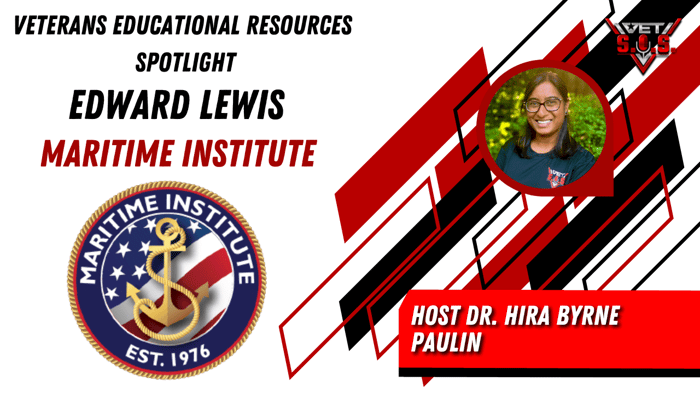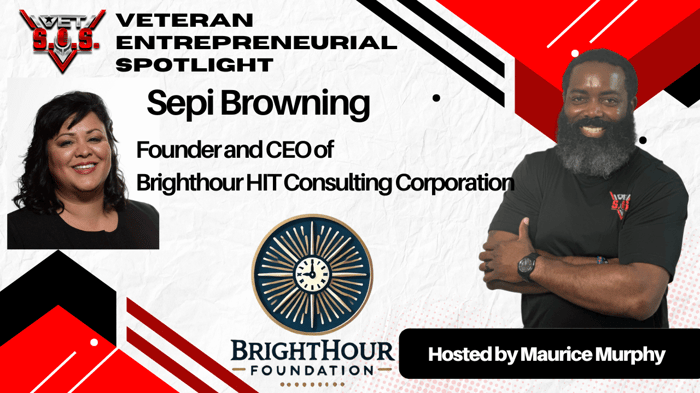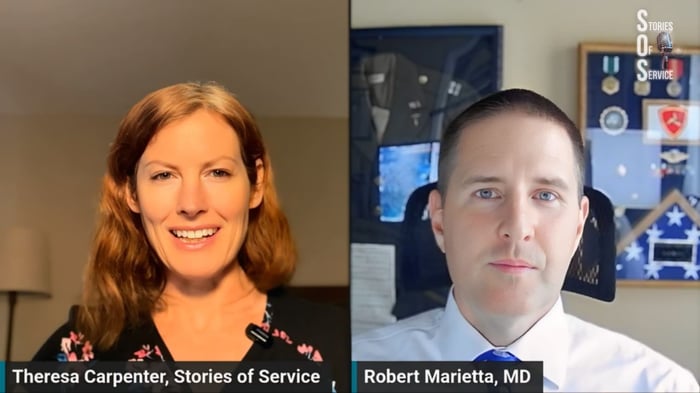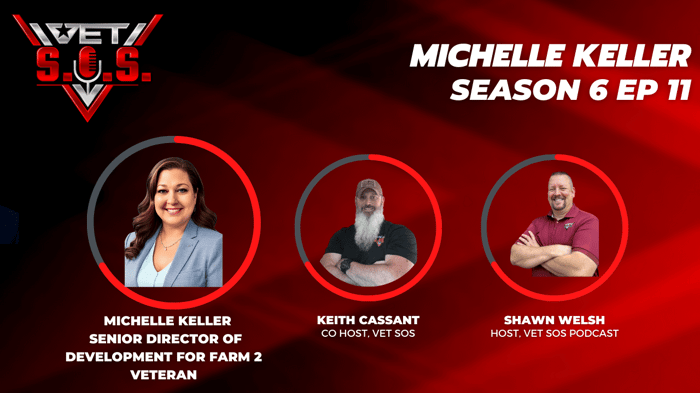Maritime Careers for Veterans: Turning Sea Service into Civilian Success
For many service members, transitioning from military life into the civilian workforce can feel like navigating uncharted waters. But for veterans with maritime experience, there’s a powerful and often overlooked opportunity—maritime careers for veterans offer stable employment, high earning potential, and the chance to build on skills gained during service.
In a recent episode of the VET S.O.S. Veteran Educational Resources Spotlight, host Dr. Hira spoke with Edward Lewis, Vice President of Operations at the Maritime Institute and retired U.S. Coast Guard Master Chief. Their conversation revealed how veterans can leverage their sea service into rewarding civilian roles without starting over, thanks to specialized training, funding options, and strong industry networks.
Edward Lewis: From Coast Guard Master Chief to Maritime Leader
 Edward Lewis
Edward LewisEdward Lewis has more than 32 years of distinguished service in the U.S. Coast Guard, including 16 years as a Master Chief. Beyond his operational leadership, he earned a master’s degree in human service counseling focused on military resilience and has served on multiple boards and advisory councils related to maritime workforce development.
Today, as Vice President of Operations at the Maritime Institute, Edward leads staff recruitment, builds strategic partnerships, and ensures training programs align with industry needs. His career path is a prime example of how maritime careers for veterans can provide a seamless and successful transition to civilian life.
A Smooth Military Transition
While many veterans face uncertainty when leaving the service, Edward’s transition was smoother than most because he built his network long before his retirement. As the Coast Guard’s Rating Force Master Chief for engineering, he worked with national maritime organizations, veteran programs, and policy makers to create pathways for service members entering the civilian maritime industry.
His advice to others considering maritime careers for veterans is clear:
Decide where you want to live after service.
Identify what kind of work you want to do.
Start networking before you transition.
These three steps can dramatically improve the chances of a successful shift from military to civilian maritime roles.
The Maritime Institute: Training the Next Generation
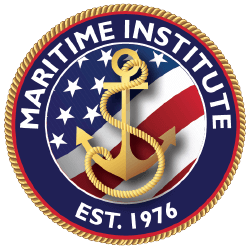 The Maritime Institute is the nation’s largest mariner training provider, with locations in Norfolk, San Diego, Alameda, Everett, Honolulu, and Guam. About 90–95% of its programs train professional mariners, including many transitioning veterans from the Navy, Coast Guard, and the Army’s lesser-known mariner force.
The Maritime Institute is the nation’s largest mariner training provider, with locations in Norfolk, San Diego, Alameda, Everett, Honolulu, and Guam. About 90–95% of its programs train professional mariners, including many transitioning veterans from the Navy, Coast Guard, and the Army’s lesser-known mariner force.
A key offering is gap training—a process that evaluates a veteran’s prior sea service, identifies credentialing gaps, and provides the specific training needed to qualify for a Merchant Mariner Credential. This allows veterans to avoid starting from entry-level positions and instead move directly into higher-paying jobs.
The 28-Day Boot Camp Program
One of the most impactful programs for maritime careers for veterans is the Maritime Institute’s 28-day boot camp. Regulated by the Coast Guard and meeting STCW (Standards of Training, Certification, and Watchkeeping) requirements, the program equips graduates with the credentials needed to sail internationally or domestically.
In less than a month, veterans can transition from civilian life into a career-ready status with the flexibility to work for major shipping companies, tugboat operators, cruise lines, or port authorities. This program is particularly appealing because funding—often from sources other than the GI Bill—can cover the costs.
Funding Options Beyond the GI Bill
Edward stresses that while the GI Bill is valuable, veterans should consider it a last resort for maritime credentialing. This is because GI Bill benefits for non-degree programs are calculated differently and could reduce the total months available for future education.
Instead, he recommends exploring:
Credentialing Assistance Funds – Up to $4,500 annually for Coast Guard members and $2,500 for Army service members.
Union-Sponsored Training – Many maritime unions fully fund training for qualified applicants.
Local Workforce Development Programs – Funding varies by region and even by zip code.
Employer-Paid Training – Some maritime employers cover training costs for new hires.
For those pursuing maritime careers for veterans, understanding these funding streams can make the difference between paying out of pocket and receiving full coverage.
Career Paths in the Maritime Industry
The scope of maritime careers for veterans is vast, offering options for those who want to remain at sea and those seeking shore-based roles. Potential positions include:
Able Seaman / Able Seafarer – Average salaries near $100,000 annually.
Ordinary Seaman – Entry-level roles starting around $66,000 per year.
Tugboat Crew Member – High demand and consistent work schedules.
Cruise Ship Staff – Opportunities to travel while earning sea time.
Port and Shipyard Roles – Including crane operators, logistics specialists, finance professionals, and administrative staff.
Edward shares stories of graduates who have gone from unemployment to global travel and six-figure salaries in less than a year. For veterans seeking a well-paid and adventurous career, the maritime sector offers unmatched potential.
The Power of Networking
In the maritime industry, as in the military, success often depends on relationships. Edward encourages veterans to connect with local maritime associations, such as the Virginia Maritime Association, which represents over 450 companies. These networks provide insider access to job openings, mentorship, and career guidance—making them invaluable for anyone pursuing maritime careers for veterans.
Dispelling Myths About Maritime Work
One hesitation some veterans have about pursuing maritime careers is the belief that life on a civilian vessel will mirror their military experience. Edward is quick to dispel this notion. Civilian maritime work spans everything from luxury cruise ships to river barges to advanced container ports. The diversity of opportunities means veterans can find a role that suits their lifestyle, whether that means staying local or traveling the world.
A Veteran-Friendly Environment
At the Maritime Institute, roughly 80% of staff are veterans or retirees. This creates a workplace culture that feels familiar and supportive for those transitioning from the military. Edward describes it as being “like the chief’s mess”—a place of camaraderie, shared values, and mutual respect.
This culture makes the Maritime Institute an attractive training choice for veterans looking to enter or advance in the maritime industry. It also serves as a powerful example of how veteran-friendly organizations can help service members thrive after transition.
Edward’s Final Advice
Edward’s message to veterans is simple: Don’t leave your sea time on the table. Military maritime experience is a valuable credential that, when properly documented and paired with the right training, can open the door to high-paying careers.
For veterans, maritime careers for veterans offer:
Competitive pay.
Global job opportunities.
Career stability.
The chance to continue working in a team-oriented environment.
Whether you want to stay at sea or move to shore-based operations, there’s a place for you in the maritime industry.
Conclusion
The maritime industry represents one of the most promising career paths for veterans. By leveraging prior sea service, accessing targeted training like the Maritime Institute’s gap programs, and exploring funding opportunities beyond the GI Bill, veterans can secure high-paying, stable, and rewarding jobs.
If you’re a service member or veteran considering your next step, now is the time to explore maritime careers for veterans. The opportunities are vast, the industry is hiring, and your military experience is your strongest asset.
